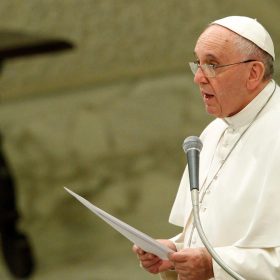Leaders from Ukraine, Poland, and Latvia have strongly criticized Pope Francis’ recent remarks from the Vatican, suggesting that Ukraine should negotiate with Moscow after more than two years of war. Ukrainian President Volodymyr Zelensky emphasized that the church should be actively engaged with the people, rather than acting as a distant mediator. He praised Ukrainian clerics who are actively supporting defense forces on the front lines, emphasizing that the church should stand with the people.
Pope Francis, in comments made to Swiss public television, urged the courage to negotiate when faced with defeat, without explicitly mentioning Ukraine or Russia. He suggested that talks should involve international powers. Polish Foreign Minister Radosław Sikorski countered this by proposing that Putin withdraw his army from Ukraine, bringing immediate peace without the need for negotiations.
Poland, a staunch supporter of Ukraine, expressed disappointment in the Pope’s remarks. Other countries, including Latvia and Germany, also expressed dismay. Latvia’s President Edgars Rinkēvičs emphasized the importance of not capitulating to evil and fighting against it, while Germany’s Foreign Minister Annalena Baerbock questioned the Pope’s understanding of the situation and called for condemnation of Russian aggression.
A defense specialist in Germany’s coalition government, Marie-Agnes Strack-Zimmermann, criticized the Pope’s appeal, urging him to condemn the actions of the Russian Orthodox Church leader and former KGB agent. She expressed shame as a Catholic for the Pope’s failure to do so.
In response to calls for Ukraine’s surrender, Göring-Eckardt highlighted that the onus to end the war lies with Vladimir Putin, not Ukraine. She emphasized that demanding Ukraine’s surrender amounts to accepting the illegal annexation of Ukrainian territory and the destruction of the country.




Comments are closed for this post.